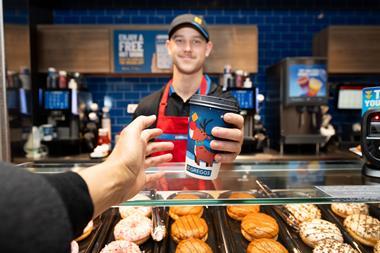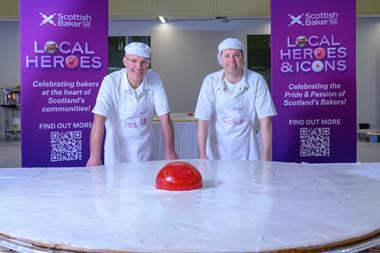Craft, freshness and the story behind bread and other baked goods are three of the biggest trends affecting bakery right now, according to supplier Puratos.
The findings come from its global Taste Tomorrow report, which launched in the UK this month. Taste Tomorrow is the world’s largest bakery, patisserie and chocolate consumer survey, according to Puratos, which saw 17,478 consumers questioned in 40 countries. The independent study offers an insight into the future and predicts what consumers will come to expect in the run-up to 2030.
“Our unique Taste Tomorrow report shows that freshness, quality and the stories shared around food are so important to today’s consumer and that certain trends, such as craft bakery, continue to remain popular,” said Julia Darvill, UK general manager at Puratos UK.
“We are certain this incredible research will help inspire and guide businesses as they innovate to meet consumer demands in the crucial years ahead.”
Here’s what you need to know:
Fresh is best
Freshness is the number one priority for consumers when buying bread, just as it was in 2015. It’s also high on the list of priorities when buying pastries and patisserie items – coming second only to taste, according to Puratos.
What has changed over the past three years, however, is how freshness is defined:
- 65% base their perception of freshness on colour and appearance
- 55% on smell
- 72% of people judge a product’s freshness on when it was baked or prepared
- 38% base this on a product’s expiry date.
In addition, it’s clear that consumers equate freshness to quality. Nearly nine out of 10 consumers (88%) believe fresh food is of good quality, compared to just 40% who think packaged food is and 59% who believe it of frozen food.
Getting crafty
Craft, by dictionary definition, means an activity involving skill in making things by hand. While the majority of consumers adhere to this definition when it comes to baked goods, not all of them do.
Just over two-thirds (68%) of those polled believe a product is defined as craft if it’s made by an artisan, while 62% believe they must be made by hand to be considered craft.
There are other things consumers take into account as well:
- 50% say craft bakery must follow an original recipe
- 41% believe it should be made from natural ingredients
- 24% say it should be made without preservatives.
“With 66% of people saying they would be willing to pay more for handcrafted products, there is no doubt that craft bakery adds value for consumers and offers a number of business opportunities,” Puratos explains.
This is evident in Paul Rhodes Bakery’s new Mastercrafted range, which was born out of a “renewed focus on ingredients provenance, true artisanal techniques and a firm commitment to sustainability and supporting independent British farmers”. The 14-strong range includes a Greenwich Rye, British Slipper, Sicilian Olive Sour and Sage Emmer.
Everyone loves a story
It is becoming increasingly important to share the story behind food. Sixty-six per cent of people, for example, appreciate seeing goods baked on-site, an increase since 2015, and 55% of consumers say they find it interesting when traditions, heritage and history are shared.
One of the most effective ways to share the brand story is face-to-face, as just 14% of people say they would read about a product’s story on the packaging.
“Training staff on your brand story means they are able to share this with customers and instil in them the same passion you and your team feel,” says Vera Malhotra, marketing director, Puratos UK. “Ensure your brand story is incorporated into your branding and communicated at any relevant events or initiatives, as well as across all social media activity. Share your brand story consistently, honestly and passionately, and you’ll see the return in customer interest and loyalty.”
































No comments yet